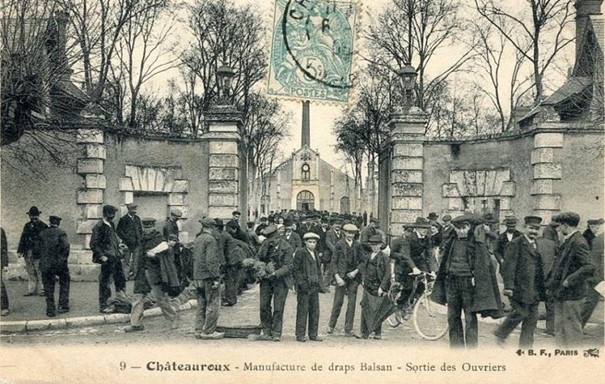Mouvement ouvrier, syndicalisme et socialisme dans un département rural : L’Indre 1880-1914
Thèse préparée par Jean-Luc Labbé sous la direction de Clotilde Druelle-Korn (CRIHAM, Unilim)
Le début des années 1880 inaugure dans l’histoire du mouvement ouvrier français le temps des organisations. Il s’agit de mobiliser dans la durée. Mais qu’en est-il dans un département rural où une nouvelle et timide industrialisation commence à peine ? Dans un département où la classe ouvrière en formation est constituée en majorité de femmes ?
L’émergence des idées et des organisations répond-elle à un « processus descendant » ou s’invente-t-elle des chemins originaux indissociables de leur terrain ? Le cadre départemental est-il pertinent alors que les « pays » (petites régions naturelles), sont encore très cloisonnés avant 1914 ? Quelles convergences et divergences avec le département voisin du Cher, l’autre département qui, avec l’Indre, compose le Berry ? Quels sont les chemins concrets de l’engagement militant ?
La thèse a pour objet cette histoire de l’émergence des organisations ouvrières, des mobilisations sociales et des premières conquêtes électorales dans un département rural. Elle questionne également les notions de travail, de pluriactivité, de sociabilité. Avec la manufacture des tabacs de Châteauroux et l’industrie conquérante de la confection de vêtements, le travail industriel des femmes singularise ce moment de l’histoire départementale. Avec les mobilisations des bûcherons, des porcelainiers, des mégissiers, des aspirations nouvelles émergent.
The beginning of the 1880s inaugurated the time of organisations in the history of the French workers’ movement. It was a question of mobilising for the long term. But what about in a rural department where a new and timid industrialisation was just beginning? In a department where the working class in formation was mostly made up of women?
Did the emergence of ideas and organisations follow a « top-down process » or did they invent original paths that were inseparable from their terrain? Was the departmental framework relevant when the ‘countries’ (small natural regions) were still very compartmentalised before 1914? What are the convergences and divergences with the neighbouring department of Cher, the other department which, with Indre, makes up Berry? What were the concrete paths of militant commitment?
This thesis deals with the history of the emergence of workers’ organisations, social mobilisations and the first electoral victories in a rural department. It also questions the notions of work, pluriactivity and sociability. With the Châteauroux tobacco factory and the conquering garment industry, women’s industrial work is unique to this moment in the history of the department. With the mobilisation of lumberjacks, porcelain makers and woodworkers, new aspirations emerged.
Légende photo : La sortie de la Manufacture de draps Balsan vers 1900.

39E rue Camille Guérin
87036 LIMOGES Cedex
Tél. +33 (5) 05 55 43 56 00
